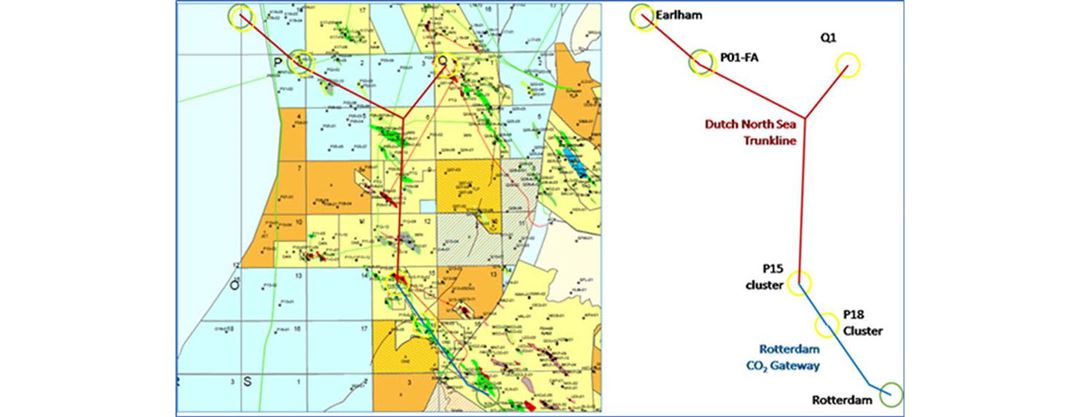
GATEWAY
Results and dissemination

Result In Brief
Pilot case to speed carbon capture, transport and storage in Europe
PUBLISHABLE SUMMARY
GATEWAY Publishable Summary - Periode 1 (Month 1-18)
DELIVERABLES
Public deliverables
D1.1 Communication plan applicable to the Pilot Case
D2.1 Public perception review (D2.1 - part 1)
D2.4 Design for assessing public perception of the Pilot Case (D2.1 - part 2)
D3.3 Model Agreements
D4.1 Pilot Case definition
D4.3 PCI prospectus - business case development
D4.4 Asessment of Synchronized Funding. The Berlin Model
D4.5 Recommendations. Next steps forward
Publishable summaries of restricted deliverables
Presentations
GATEWAY Presentation at ZEP's 1st Network Technology Meeting (NWT1) (2015-03-24, Brussels)
The GATEWAY project_Poster presentation at EERA CCS expert workshop in Brussels - Practical next steps in CCS deployment (2015-06-18, Trondheim)
GATEWAY - Developing a Pilot Case for European CO2 transport infrastructure (2015-09-15, Brussels)
Accelerating deployment of CCS in Europe - Invitation to key stakeholders (2015-10-28)
H2020 success story: Blir hørt i Europaparlamentet om klimaløsning (2015-11-26)
GATEWAY at ZEP (2016-06-08)
The GATEWAY project, flyer brought to the European CCS Forum (2016-10-13)
Presentations from GATEWAY Final Event 2017-04-24:
- Ownership and CCS - The Legal ProblemsProfessor Raphael Heffron/Lauren Downes (QMUL)
- Near-term CO2 Storage in the Dutch North Sea
- Part II: The way forward realizing a CO2 infrastructure - Synchronised funding streams -
Elisabeth Vågenes (SINTEF) - Part I: H2020 GATEWAY and the PCI application - so far, so good - H2020 project GATEWAY and the North Sea Perspective
Dr. Marie Bysveen (SINTEF)
- Project of Common Interest and the Rotterdam Nucleus Business Case
(Tom Mikunda/Filip Neele/Daniel Loeve/Logan Brunner (TNO)Charles Eickhoff/David Hanstock (Progressive E)Chris Gittins (TAQA)
Facts: H2020 GATEWAY - CO2 infrastructure in the North Sea region
The 2-year H2020 project GATEWAY, (2015-2017), aimed to accelerate the deployment of CO2 Capture and Storage (CCS) by developing a model Pilot Case aimed at an initial cross-border gateway connecting CO2 sources and sinks.
Work in the GATEWAY project involved the identification of key technologies, assessment of relevant legal frameworks, statutes and viable ownership arrangements, a design for the assessment of local public perception, and the identification of possible funding sources. This work fed into the proposal for a European Project of Common Intrerest (PCI), which included a prospectus for a PCI business case. As part of this work, a costbenefit analysis was also performed. Through multiple GATEWAY stakeholder eventsit became evident that sufficient traction from industrial and governmental representatives existed to support the project to actually submit the Rotterdam Nucleus business case as a PCI.
In March 2017, the Port of Rotterdam Authority offered to adopt the Rotterdam Nucleus PCI business case and become the official 'Project Promoter' for a PCI submission. The PCI submission also benefitted from encouragement from the Dutch Ministry of Economic Affairs, the UK Department for Business, Energy and Industrial Strategy, as well as several affiliated applicants from the UK and Dutch private sectors. GATEWAY has hereby played a pivotal role in launching one of the first PCI applications with a defined business case, clear ownership and backing from multiple stakeholders. The Rotterdam Nucleus project will provide the foundations for a high-volume CO2 transportation infrastructure system from mainland Europe to CO2 storage locations in the Dutch and UK sections of the North Sea. The infrastructure is designed to be over-sized, capable of providing CO2 transport capacity for pre-commercial and commercial phase CCS deployment in Rotterdam, as well as possible future links to industrial areas of third-party countries. A simplified outline of the two segments of the pipeline structure can be seen in the figure below.
Conclusions and way forward
The GATEWAY project has been able to go beyond its initial expected objectives, by not only developing a business case for a potential PCI project, but also by generating sufficient industrial and government support to enable the actual submission of PCI application to the EC in April 2017.
The learnings generated through the development of the chosen Pilot Case, the Rotterdam Nucleus, including the societal, legal and technical work completed around the case, have led to the compilation of 33 recommendations which can be used in the development of future CO2 transport PCIs